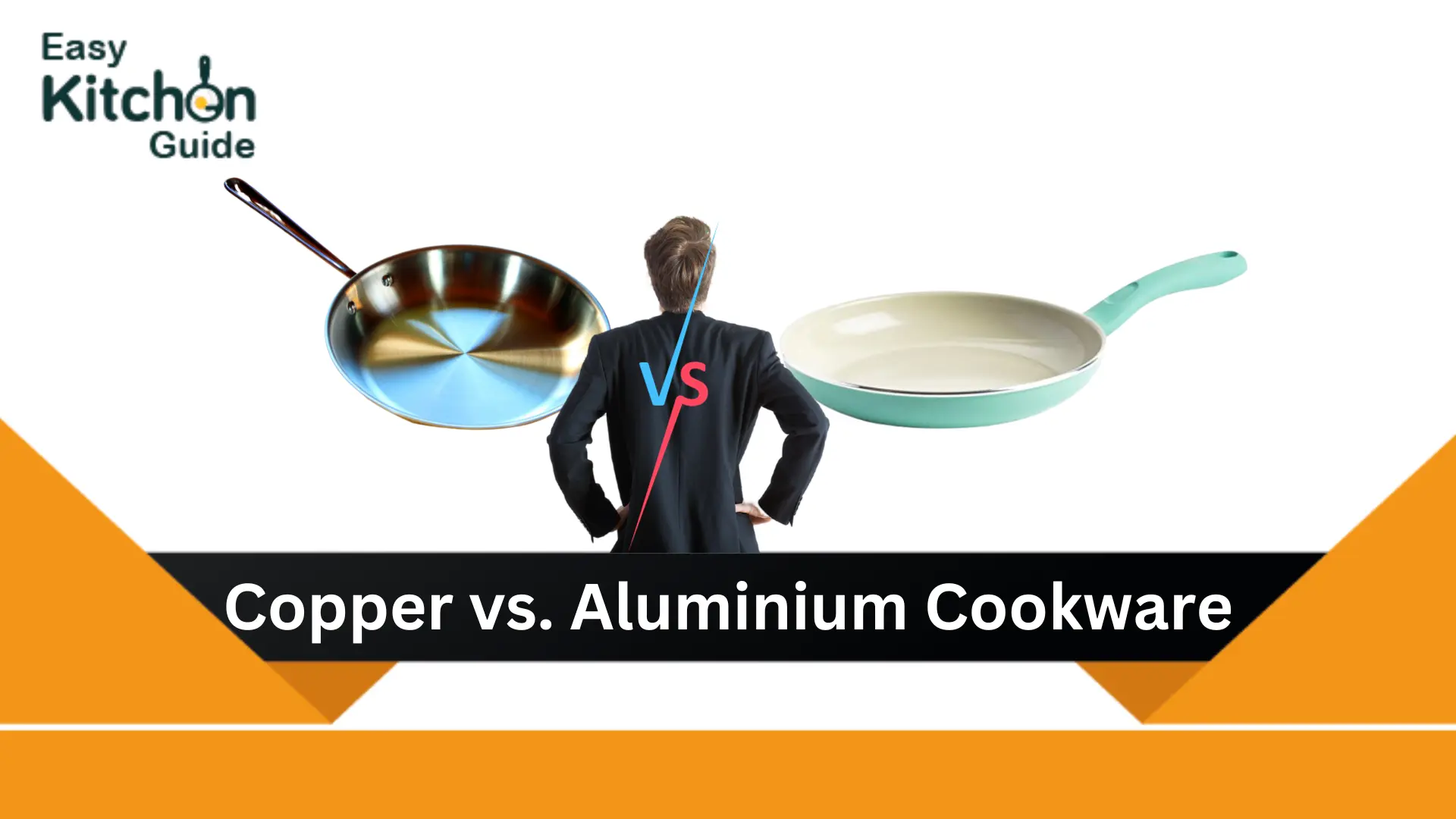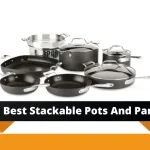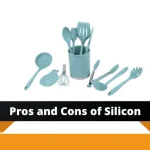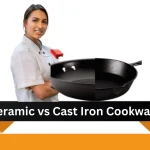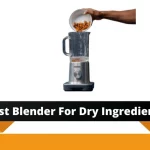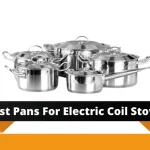In culinary exploration, selecting the right cookware is akin to choosing a trusted companion for your kitchen endeavors. Among the myriad options available, copper and aluminum cookware stand out as contenders for the coveted role of kitchen workhorse. The choice between copper and aluminum cookware can significantly impact your cooking experience, influencing everything from heat distribution to the longevity of your kitchen tools.
This guide will delve into the nuances of copper vs aluminum cookware, examining their characteristics, pros and cons, and helping you make an informed decision for your culinary needs.
Making the Decision: Copper or Aluminum?
Table of Contents,
The choice between copper and aluminum cookware ultimately boils down to your cooking preferences and priorities. If you value precise temperature control and are willing to invest in maintenance, copper cookware may be your ideal companion. On the other hand, aluminum cookware is the perfect fit if you seek efficiency, affordability, and easy maintenance.
Both copper and aluminum have their merits and drawbacks. Your decision should align with your cooking style, budget, and the level of maintenance you are comfortable with. By understanding the unique qualities of each, you can commence a culinary journey with the perfect companion by your side.
Copper vs Aluminum Cookware: A Side-by-Side Comparison
To start our exploration, let’s present a quick reference point – a comparison table highlighting key aspects of copper and aluminum cookware.
| Criteria | Copper Cookware | Aluminum Cookware |
| Heat Conductivity | Superior – Rapid and Even | Efficient – Quick, but Less Even |
| Durability | Durable, but Requires Maintenance | Lightweight, Prone to Denting |
| Reactivity with Food | Reactive – Not Ideal for Acidic Food | Non-reactive – Suitable for All |
| Cost | Expensive | Affordable |
| Maintenance | Requires Regular Polishing | Easy to Clean, Less Maintenance |
| Weight | Heavier | Lightweight |
Copper Cookware: The Conductor of Culinary Symphony
At the heart of copper cookware lies its exceptional conductivity. The copper core ensures heat is distributed swiftly and evenly across the cooking surface. This attribute makes copper cookware the go-to choice for tasks that demand precision and quick temperature adjustments.
Pros
- Superior Heat Conductivity: Copper is ability to conduct heat rapidly and evenly is unparalleled.
- Aesthetically Pleasing: The warm, reddish tones of copper add a touch of elegance to your kitchen.
- Versatility: Copper cookware is suitable for a wide range of cooking techniques.
Cons
- Reactivity: Copper can react with acidic or alkaline foods, potentially affecting the taste.
- Maintenance: Regular polishing is required to keep the cookware looking pristine.
Aluminum Core: Balancing Act of Efficiency
Aluminum cookware, with its lightweight construction, offers efficiency and affordability. The aluminum core ensures quick heating, although it may not provide the same level of even heat distribution as copper.
Pros
- Efficient Heat Conduction: Aluminum heats rapidly, making it ideal for quick cooking.
- Affordability: Aluminum cookware is budget-friendly.
- Lightweight: Easy to handle and suitable for everyday use.
Cons
- Durability: Prone to dents and scratches, requiring careful handling.
- Reactivity: While less reactive than copper, aluminum can still react with acidic foods.
Cooking with Copper: Answering Common Questions
How to Clean Copper Cookware: A Gleaming Guide
Cleaning copper cookware is an essential aspect of maintaining its shiny appearance. To keep your copper pans in top condition, follow these simple steps:
- Gentle Cleaning Solutions: Avoid harsh chemicals that can damage the copper’s surface. Instead, use a mixture of equal parts vinegar and salt, or lemon juice and baking soda. Apply the solution with a soft cloth or sponge.
- Regular Polishing: Copper tends to tarnish over time, but regular polishing can restore its luster. Use a specialized copper cleaner or a mixture of flour, salt, and vinegar to polish your cookware.
- Avoid Abrasive Tools: Steer clear of abrasive scouring pads or harsh brushes, as they can scratch the copper. Opt for softer materials like a nylon brush or a cloth to clean your pans.
- Drying Immediately: After washing, dry your copper cookware thoroughly to prevent water spots and tarnish. Towel drying is effective, but for extra shine, use a soft, dry cloth to polish the surface.
Remember, a little care goes a long way in keeping your copper cookware gleaming and ready for your next culinary adventure.
Are Copper Utensils Worth the Investment?
Investing in copper utensils can be a worthwhile decision for several reasons:
- Exceptional Heat Conductivity: Copper is an excellent conductor of heat, providing precise temperature control during cooking. This makes copper utensils ideal for tasks that require quick adjustments, such as sautéing or simmering.
- Aesthetic Appeal: Beyond its functional benefits, copper utensils add a touch of elegance to your kitchen. The warm, reddish tones create a visually pleasing contrast, making them a stylish addition to your cookware collection.
- Versatility: Copper utensils are versatile and can be used for various cooking techniques. From whipping up delicate sauces to searing meats, copper adapts to your culinary needs.
However, it’s essential to consider the cons, such as the reactivity of copper with certain foods and the maintenance required to keep them looking pristine. If you value the unique benefits copper brings to your kitchen and are willing to invest time in care, copper utensils can be valuable.
Navigating the world of copper cookware involves considering various factors to find the best fit for your kitchen:
- Core Material: Opt for cookware with a copper core for superior heat conductivity. Some pans have a thicker layer of copper, providing better control over temperature changes.
- Lining Material: The interior lining can impact the reactivity of copper with certain foods. Stainless steel and tin linings are common choices, each offering distinct advantages.
- Handle Material: Choose cookware with handles made of materials that stay cool during cooking, such as cast iron or stainless steel. This ensures a comfortable and safe cooking experience.
- Thickness: Thicker copper pans often offer better heat distribution, making them suitable for precise cooking. However, they can be heavier and more expensive.
Considering the above thing in my mind and based on my own personal Usage, i have shortlisted these two options as the best to choose
Ceramic cookware:
Cooking with Aluminum Cookware: Answering Common Questions
How to Clean Aluminum Cookware: A Gleaming Guide
Cleaning aluminum cookware is a straightforward process that ensures longevity and maintains its shine:
- Mild Detergent: Use a mild detergent or dish soap with warm water to clean your aluminum pots and pans. This helps remove cooking residues without causing damage.
- Avoid Abrasives: Steer clear of abrasive scouring pads or harsh cleaning tools, as they can scratch the aluminum surface. Opt for softer materials like nylon brushes or soft cloths for effective cleaning.
- Handwashing is Ideal: While some aluminum cookware is labeled as dishwasher-safe, handwashing is often recommended to extend the life of your pans.
- Dry Thoroughly: Dry your aluminum cookware completely to prevent water spots and potential oxidation. Towel-drying or air-drying can both be effective methods.
Following these simple steps, you can keep your aluminum cookware gleaming and ready for your next culinary creation.
Also, Read Trending Topics
Aluminum Cookware: Tips for Longevity
Ensuring the longevity of your aluminum cookware involves mindful use and proper care:
- Avoid High Heat: While aluminum heats up quickly, excessive heat can cause warping. Use medium to low heat settings for optimal results.
- Use Wooden or Plastic Utensils: When cooking, opt for wooden or plastic utensils to prevent scratches on the aluminum surface. Metal utensils can lead to premature wear and tear.
- Avoid High Acid Foods: Aluminum can react with high-acid foods, potentially affecting the taste. Consider using stainless steel or other non-reactive cookware for acidic dishes.
- Regular Checks: Periodically inspect your aluminum cookware for signs of wear, such as scratches or dents. Addressing issues early can help extend the life of your pans.
By incorporating these tips into your kitchen routine, you can maximize the lifespan of your aluminum cookware and enjoy its benefits for years to come.
Best Aluminum Cookware
Choosing the best aluminum cookware involves considering your specific cooking needs and preferences. Here are some factors to guide your decision:
- Core Material: Look for aluminum cookware with a sturdy core for efficient heat distribution. Some pans feature additional layers for enhanced performance.
- Coating: Non-stick coatings can make cooking and cleaning easier, but consider the durability of the coating. Some high-quality aluminum pans come with durable non-stick surfaces.
- Handles: Opt for cookware with heat-resistant handles for safe and comfortable cooking. Handles made from materials like stainless steel or silicone stay cool during use.
- Versatility: Consider the versatility of the cookware. Some aluminum pans are designed for specific tasks, while others offer flexibility for various cooking techniques.
Ceramic cookware:
- Rachael Ray Brights Hard-Anodized Aluminum Nonstick Cookware Set
- T-fal Ultimate Hard Anodized Nonstick Cookware Set
In Summary:
In the journey of culinary exploration, your choice of cookware becomes a defining factor. Whether you opt for the rapid precision of copper or the efficient simplicity of aluminum, each material brings its charm to the kitchen. By understanding the intricacies of copper and aluminum cookware, you empower yourself to make decisions that align with your cooking style and preferences. Here’s to a kitchen filled with delightful creations and the perfect cookware companion by your side. Stay tuned for another exciting exploration of kitchen essentials!

